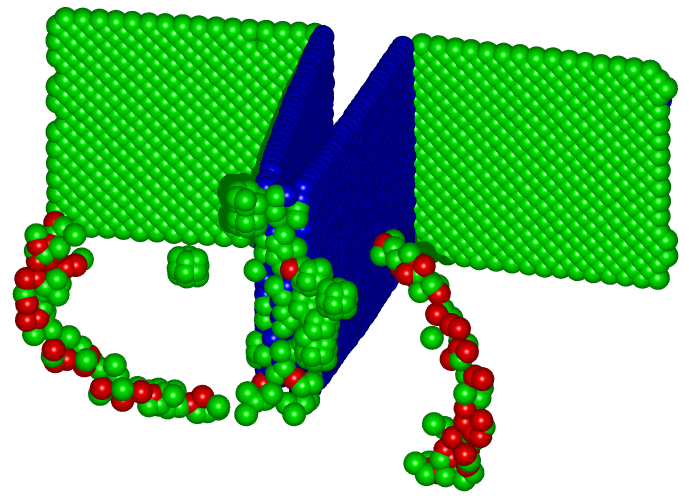Alena Spielmannová and Anna Machová deal with both experimental and theoretical research of crack stability. The main field of our interest is a study of the brittle-ductile behavior at the crack front of bcc iron crystals (newly also in bcc iron with Cu nanoprecipitates) by means of atomistic simulations via molecular dynamic technique. Molecular dynamic simulations enable us to observe fast generation of the defects at the crack front, to investigate their influence on the crack stability or crack growth and to study the microscopic processes at the crack front independently on continuum models. The only failure criterion in MD is the cut-off radius of nonlinear interatomic forces. Generation of defects in MD simulations is a spontaneous process controlled solely by the interatomic forces and external conditions. It enables to study micromechanics of the ductile-brittle transition at elevated temperature or high strain rate, further to verify continuum fracture prediction or to search new failure criteria.
We perform the atomistic simulations via molecular dynamic technique under plane strain conditions and also in 3D. Unlike the simulations under plane strain conditions, in 3D the movement of atoms is allowed in all 3 directions, which enables realistic thermal simulations and show that different microscopic processes can be realized at the crack tip, with different consequences for crack stability.
Another part of our work is devoted to the fracture test on single crystals of Fe(3wt%Si) made in cooperation with the Laboratory of Ultrasonic Methods and to the stress analysis in anisotropic continuum. The results of the experiments and the stress analysis can be qualitatively compared to the atomistic results. The concept of two-parameter fracture mechanics has been used to obtain an agreement between the predictions on the ductile-brittle behavior coming from continuum and atomistic models.
 |
 |
© 2008 Institute of Thermomechanics ASCR, v. v. i.